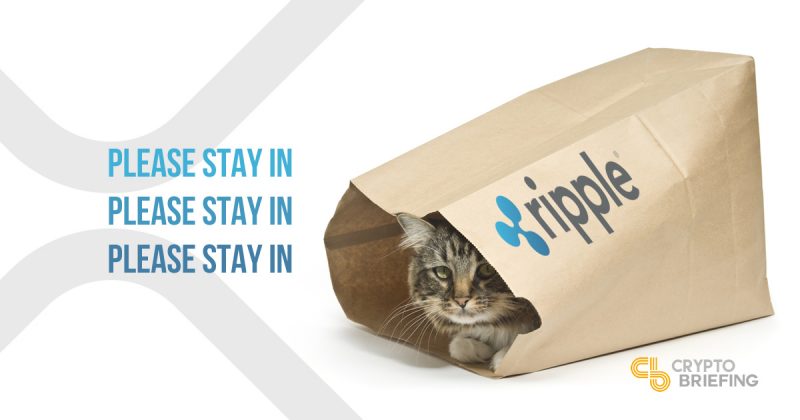
XRP Is Not Ripple: Brands Diverge As SEC Closes In
XRP is not Ripple, and Ripple is not XRP. That's the message from The Hatch Agency, a PR firm that represents Ripple - the technology company.
XRP is not Ripple, and Ripple is not XRP. That’s the message from The Hatch Agency, a PR firm that represents Ripple – the technology company.
XRP is an “independent digital asset” according to the email, echoing an earlier tweet from Ripple.
The digital asset #XRP and the company #Ripple are distinctly different. Learn why. https://t.co/yv8cW1gYH6 pic.twitter.com/w3npq2O894
— Ripple (@Ripple) July 9, 2018
Over thousands of articles, images, posts and statistics, across hundreds of publications, the two brands have been functionally indistinct since the inception of the XRP token (‘XRP’ harkens to ‘RXRP’, the ‘Ripple Transaction Protocol’). Today, however, there is a clear line between them. XRP is not Ripple.
And while Ripple may now prefer to be known for selling software, it has traded on the good name of the XRP token for years. (The site for XRP is hosted at www.ripple.com/xrp and articles extolling its virtues are still to be found on the Ripple website. The referenced article includes the line “There are different ways to buy XRP depending on who you are. If you’re a financial institution, it’s best to contact Ripple directly. “)
Ripple – the technology company – became one of the most valuable startup companies in history on the back of creating a cryptocurrency that still ranks as the third-most valuable in the world, according to CoinMarketCap (which recently changed its symbol over to XRP, as noted in the statement from The Hatch Agency… but the URL may take more persuasion).
Along the way, Ripple – or at least, investing wisely in the XRP token – made some people very rich. Chris Larsen, Jed McCaleb and Brad Garlinghouse have all been described as billionaires – and not because of their salaries.
If XRP Is Not Ripple, Then What Is It?
Ripple’s own people seem to have difficulty with the concept: Ripple’s chief marketing strategist appeared on The Street and suggested that “XRP is a digital asset that trades on its own that’s owned by lots of people in lots of places. We happen to own a lot of XRP – we own a lot of cash, chairs and computers – but the company is called Ripple and we sell software.”
While Steve Jobs may have once disavowed a Newton-like device, the annals of corporate history are not littered with furniture companies angrily distancing themselves from their sofas.
As Business Insider has pointed out, “Both the currency and the company were founded by the same people and the company owns more than half of the currency. But Ripple (the company) tries to stress that the two are not one and the same, an important distinction given that investors could fall into the trap of seeing XRP as a proxy for Ripple’s performance.”
Meanwhile Ripple (the tech company) is still holding 60 billion XRP – and although 55 billion are still in escrow, some have argued that this suggests a strong degree of centralization.
The problem lies here, and it is the fact that the SEC pointedly did not include Ripple, or XRP, or any combination of the two, in its recent statement on the status of Ethereum and Bitcoin. These two are not securities – leaving many in the financial world to wonder why the XRP token was not mentioned.
An unfavorable SEC ruling could tamp down the value of XRP down considerably, and could even spell legal trouble for those responsible if Ripple fails the Howey Test.
Centralization is one thing – but others have gone so far as to question the utility of XRP at all, given that Ripple’s Chief Cryptographer, David Schwartz, explained that the protocol can work without XRP. And some of those skeptics believe that the XRP token therefore exists only to fund Ripple and inflate its valuation.
Meanwhile, the escrow arrangement allows for one billion XRP to flow into Ripple coffers every month, at the discretion of the tech company.
This might be a tough, uphill struggle.
For The Hatch Agency, we mean – Ripple is getting used to it.
.@Ripple‘s chief market strategist @CoryTV on #CryptoCraze discussing what people need to understand about digital assets and why it’s not important for consumers to know how Ripple or blockchain technology works for them to use products and services built on them. #CheddarLIVE pic.twitter.com/szV8IyKIGA
— Cheddar (@cheddar) July 5, 2018
The author is invested in cryptocurrencies, but has never held any position in XRP.
